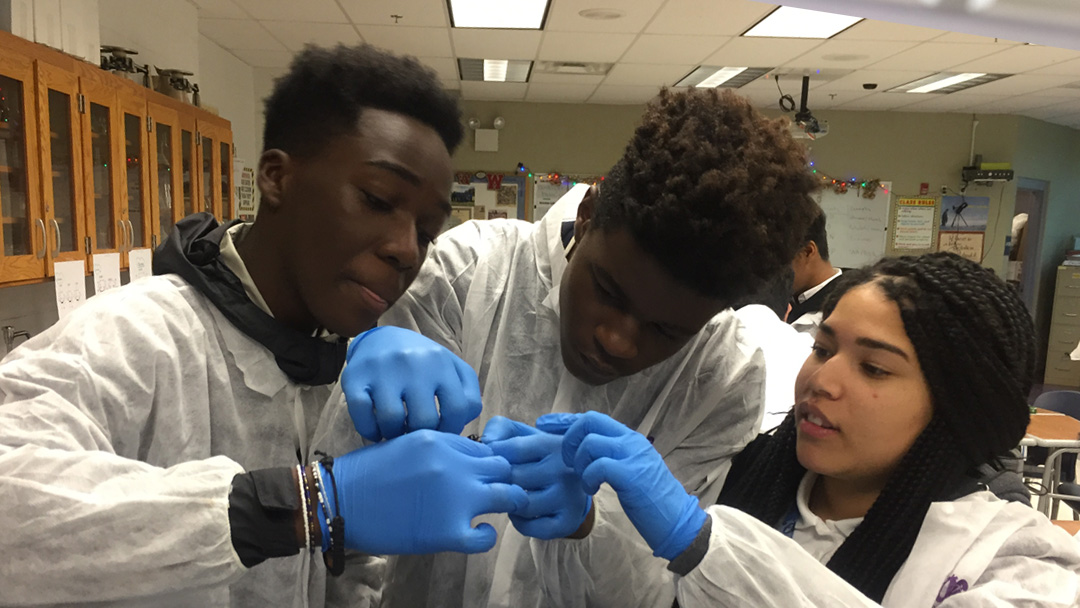The Power of Near-Peer Mentors!

Walter Reed Army Institute of Research’s program, “In-School Internships for Teachers and Students in Underserved Schools” has proven to be quite successful with its strategic component of utilizing near-peer mentors to work with students and teachers throughout the school year.
Near-peer mentors are undergraduate/post-baccalaureate interns majoring in STEM disciplines who are passionate about sharing their knowledge. They offer academic and career guidance, and are mentored themselves by experienced scientists and teachers.
Select feedback…
“Having a near-peer mentor is great because they understand our struggle, they know what drives us and that makes it better.”
“I would like if they came more.”
“I’m really proud of the difference I’ve seen from the beginning of the year to now… These students are showing me that the more creative we are with what we bring to the table, the more they’ll participate.”
“Keeping the activities interesting and fun while employing modern technology and cutting-edge techniques-makes the Enrichment more effective and leads to better outcomes.” —Teacher
“As an educator you always encounter outside forces that require you to modify and adjust the lesson at times. I would say the near-peer mentors have done an excellent job at modifying and adjusting their lessons, when they have needed to.” —Teacher
Current program status, findings, and future directions
- Comparison of pre- and post- science attitude surveys show that students have a greater desire to do science, feel a greater self-efficacy about their ability to be successful in science, would consider science as a career, and place a greater value on scientific knowledge.
- Qualitative feedback from students, teachers, and mentors, are universally positive. Students love the program and wish mentors could come more often. Teachers cite the extra help in the classroom as a huge benefit to both themselves and their students, offering the chance to do activities they could not otherwise offer. Mentors note that the experience is one that offers great personal and professional growth, and for several of our mentors, it has helped shape their next career step to include a greater emphasis on teaching or mentorship.
- A key point is that we provide opportunities to a population with minimal access and work with biology students who are at a crossroads – many will decide in 9th grade if an interest in science and evidence-based decision making will be part of their life perspective.
- As part of this program, approximately 30 novel, inquiry-based, NGSS-aligned modules have been developed and implemented in the classroom. We plan to make these accessible to teachers both within and beyond the district this program supports. At least one has already been published in NSTA’s Science Teacher magazine.
- Continued ongoing efforts to develop and implement other measures of program impact, including classroom behavioral observations will be implemented SY18–19.






